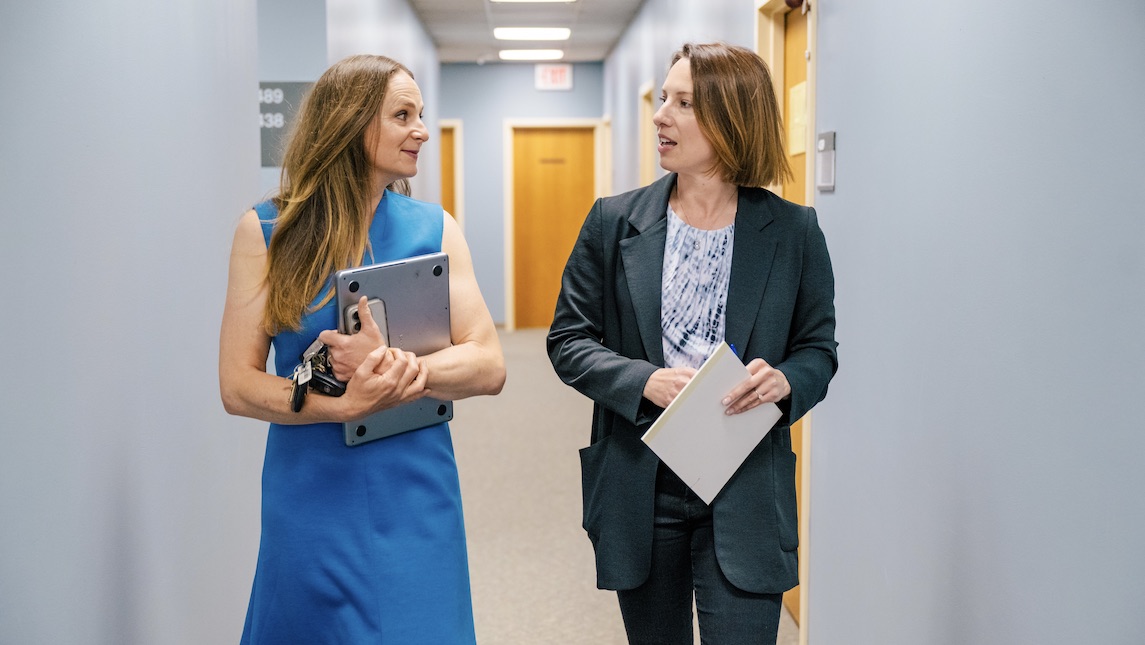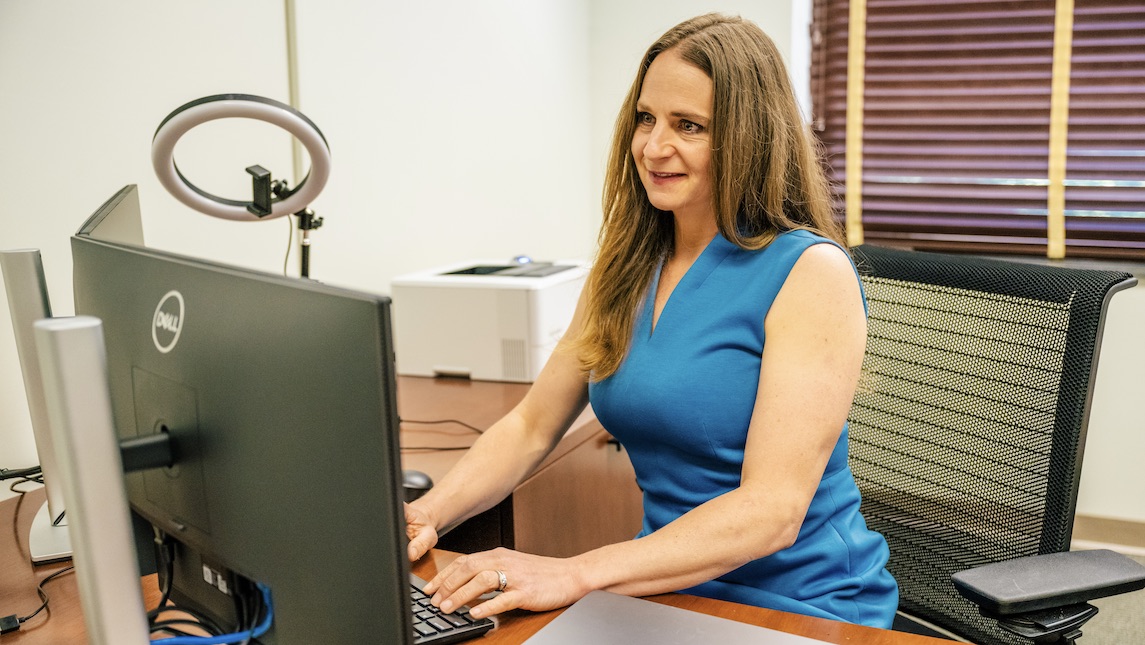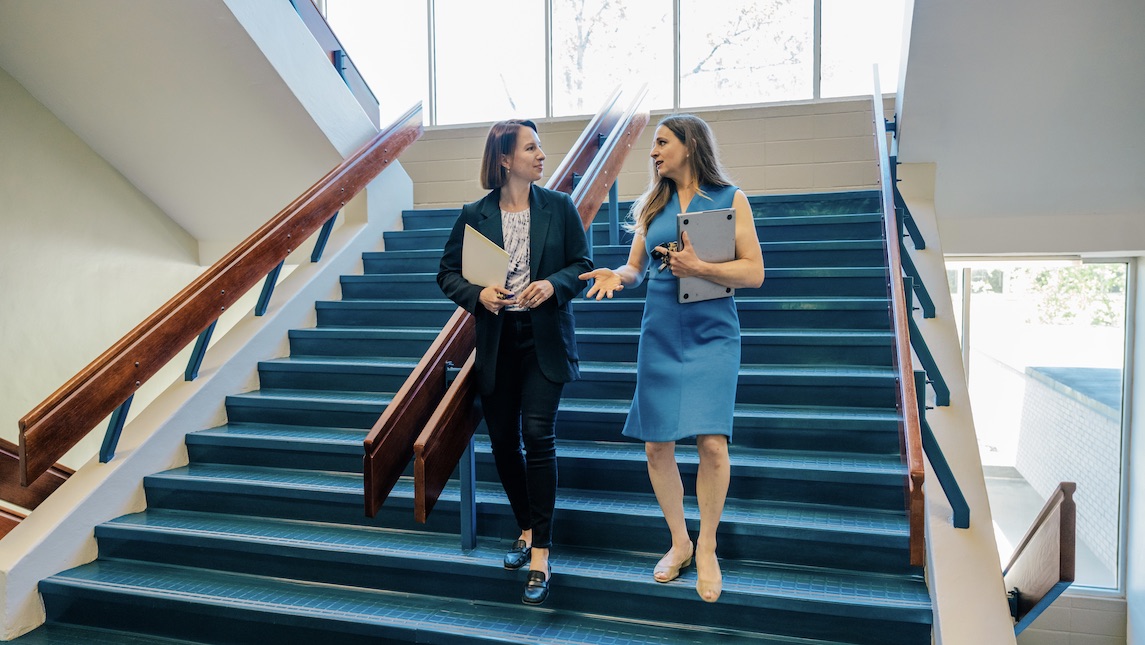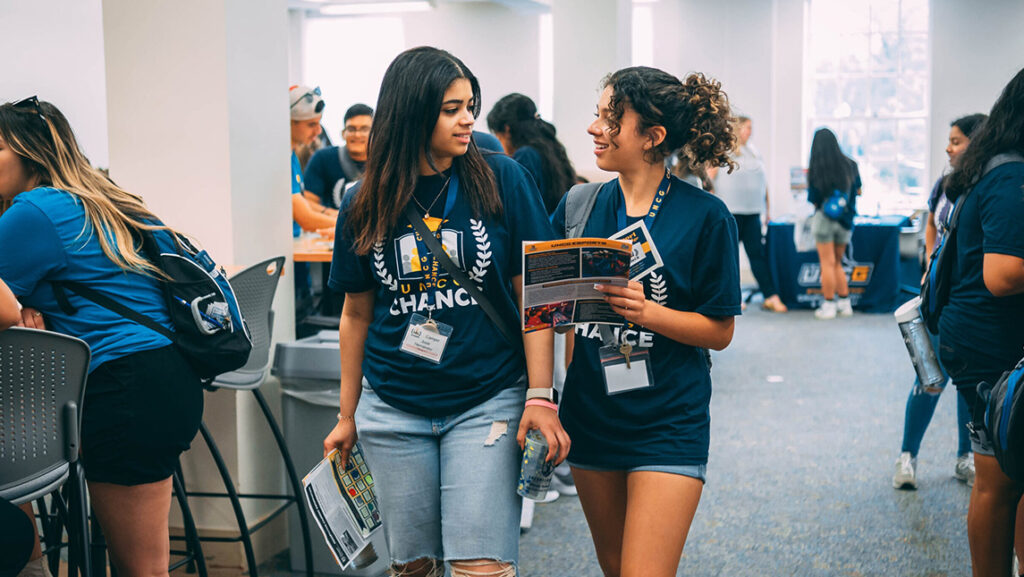More freelance workers — from delivery drivers to independent scientists — are entering the gig economy in the United States and globally every year. To help these workers thrive, Brianna Caza, of UNC Greensboro, is shedding light on the challenges they face and strategies for overcoming them.
Caza, an organizational psychology expert and associate professor in the Bryan School of Business and Economics’ Department of Management, studies how people do well in difficult work situations, including working alone.
The number of freelancers appears to be rising rapidly. Statistics on that vary, but by most accounts they seem to generally trend upward since the pandemic. Amid that rise, Caza is focused on figuring out how to help these workers become more resilient, despite challenges, related to such things as their identities, relationships, income variability, and emotional well-being, that they face when working without an organizational anchor.
Identity: A Resource for Resilience
“While I was doing my dissertation work at the University of Michigan, I noticed that how workers thought about themselves seemed to matter for how they reacted to stressors at work. Specifically, the content and structure of workers’ professional identities seemed to be something they drew upon when faced with challenges. And subsequent research has demonstrated that identity does indeed become a resource for resilience and for action more generally,” Caza says.
Caza has found that one of gig workers’ biggest challenges centers on that issue of identity: They struggle to define exactly what they do because it can vary from day to day or from project to project, she says. In addition, because their contracts are short-term, they do not have a stable organizational identity badge to use when explaining who they work for.
Other challenges range from not having a clear career path, to coping with the emotional highs and lows that come with unpredictable and highly personal work, to balancing core work that pays the bills with must-do tasks like accounting and marketing.


Interaction helps focus on work
In recent work, Caza and her colleagues have been studying ways that professional gig workers can improve their ability to control their motivation, focus on their work, and manage their energy throughout a highly unstructured workday.
To do this, they introduced two different interventions to different groups of independent workers. While both of these interventions introduced virtual social contact, they did so in slightly different ways to better understand how interacting with others can shape independent workers’ outcomes.
Some of the workers were randomly assigned to a “Virtual Social Networking” condition where they gathered with strangers to exchange tips and advice on managing independent work. A second group of workers were asked to engage in “Virtual Coworking” wherein they gathered in an online space to engage in a focused work exercise.
the Pomodoro technique
The design of this intervention was based on the Pomodoro technique, which involves selecting a single task to focus on, then working on it without interruption for 25 minutes, taking a 5-minute break, and then working again for 25 minutes.
Using this pattern of focused work followed by a short break, the freelancers were encouraged to greet each other and share goals, then work alone. They also had the option of interacting during the break. A third group of workers served in an active control condition, being asked to engage in focused work on their own.
The researchers monitored how individuals in these three conditions felt during the week before and after the sessions began. The researchers also monitored the workers’ end of day outcomes and their work outcomes for the week.
“We’re just finishing writing up the study, but we found some interesting effects,” says Caza.
“Introducing virtual social contact—in both forms—had positive effects on workers’ outcomes, over and above their baseline and the active control condition. However, having people do work together in a virtual coworking space had benefits that seemed to also last into the end of the day.”
Work that matters
Caza finds such research fulfilling, and she values not just contributing to the science of organizational psychology but also designing interventions that everyday people can use in their work to improve their wellbeing.
“I think people’s work lives have a big impact on the rest of their lives,” Caza says. “A life well lived includes having a work life that you can be proud of, that you care about, that you feel competent in, and for me, giving people tools that they can use to optimize their work life is rewarding.”
Story by Dee Shore, AMBCopy
Photography by Sean Norona, University Communications




